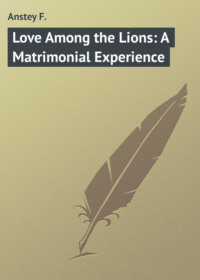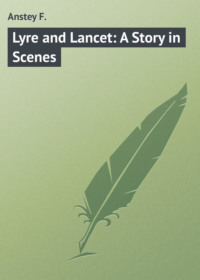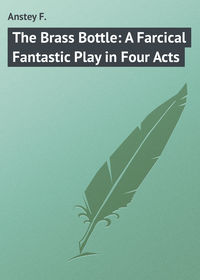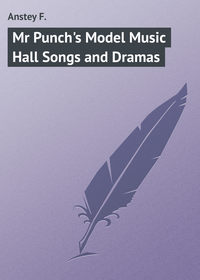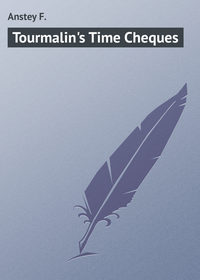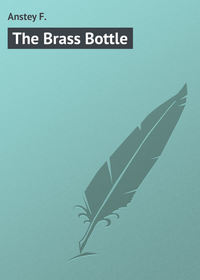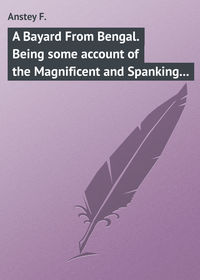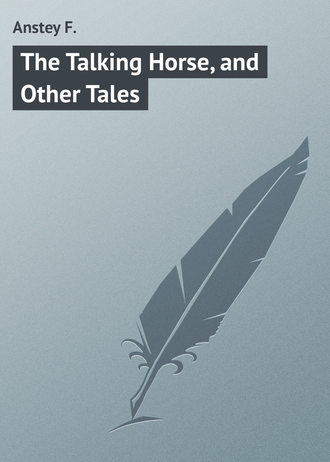 полная версия
полная версияThe Talking Horse, and Other Tales
I had only one serious complaint against him, which was that he had a habit of breaking suddenly away, with a merely formal apology, to exchange equine civilities with some cob or mare, to whose owner I was a perfect stranger, thus driving me to invent the most desperate excuses to cover my seeming intrusion: but I managed to account for it in various ways, and even made a few acquaintances in this irregular and involuntary manner. I could have wished he had been a less susceptible animal, for, though his flirtations were merely Platonic, it is rather humiliating to have to play 'gooseberry' to one's own horse – a part which I was constantly being called upon to perform!
As it happened, Diana was away in Paris that Easter, and we had not met since my appearance in the Row; but I knew she would be in town again shortly, and with consummate diplomacy I began to excite Brutus's curiosity by sundry careless, half-slighting allusions to Miss Chetwynd's little mare, Wild Rose. 'She's too frisky for my taste,' I said, 'but she's been a good deal admired, though I dare say you wouldn't be particularly struck by her.'
So that, on the first afternoon of Diana's return to the Row, I found it easy, under cover of giving Brutus an opportunity of forming an opinion, to prevail on him to carry me to her side. Diana, who was with a certain Lady Verney, her chaperon, welcomed me with a charming smile.
'I had no idea you could ride so well,' she said, 'you manage that beautiful horse of yours so very easily – with such light hands, too.'
This was not irony, for I could now give my whole mind to my seat; and, as I never interfered at all with the steering apparatus, my hands must have seemed the perfection of lightness.
'He wants delicate handling,' I answered carelessly, 'but he goes very well with me.'
'I wish you would let me try his paces some morning, Pulvertoft,' struck in a Colonel Cockshott, who was riding with them, and whom I knew slightly: 'I've a notion he would go better on the curb.'
'I shall be very happy,' I began, when, just in time, I noticed a warning depression in Brutus's ears. The Colonel rode about sixteen stone, and with spurs! 'I mean,' I added hastily, 'I should have been – only, to tell you the truth, I couldn't conscientiously trust any one on him but myself.'
'My dear fellow!' said the Colonel, who I could see was offended, 'I've not met many horses in my time that I couldn't get upon terms with.'
'I think Mr. Pulvertoft is quite right,' said Diana. 'When a horse gets accustomed to one he does so resent a strange hand: it spoils his temper for days. I never will lend Wild Rose to anybody for that very reason!'
The Colonel fell back in the rear in a decided sulk. 'Poor dear Colonel Cockshott!' said Diana, 'he is so proud of his riding, but I think he dragoons a horse. I don't call that riding, do you?'
'Well – hardly,' I agreed, with easy disparagement. 'I never believe in ruling a horse by fear.'
'I suppose you are very fond of yours?' she said.
'Fond is not the word!' I exclaimed – and it certainly was not.
'I am not sure that what I said about lending Wild Rose would apply to you,' she said. 'I think you would be gentle with her.'
I was certain that I should treat her with all consideration; but as I doubted whether she would wholly reciprocate it, I said with much presence of mind, that I should regard riding her as akin to profanation.
As Brutus and I were going home, he observed that it was a good thing I had not agreed to lend him to the Colonel.
'Yes,' I said, determined to improve the occasion, 'you might not have found him as considerate as – well, as some people!'
'I meant it was a good thing for you!' he hinted darkly, and I did not care to ask for an explanation. 'What did you mean,' he resumed, 'by saying that I should not admire Wild Rose? Why, she is charming – charming!'
'In that case,' I said, 'I don't mind riding with her mistress occasionally – to oblige you.'
'You don't mind!' he said; 'you will have to, my boy, – and every afternoon!'
I suppressed a chuckle: after all, man is the nobler animal. I could manage a horse – in my own way. My little ruse had succeeded: I should have no more forced introductions to mystified strangers.
And now for some weeks my life passed in a happy dream. I only lived for those hours in the Row, where Brutus turned as naturally to Wild Rose as the sunflower to the sun, and Diana and I grew more intimate every day. Happiness and security made me almost witty. I was merciless in my raillery of the eccentric exhibitions of horsemanship which were to be met with, and Diana was provoked by my comments to the sweetest silvery laughter. As for Colonel Cockshott, whom I had once suspected of a desire to be my rival, he had long become a 'negligible quantity;' and if I delayed in asking Diana to trust me with her sweet self, it was only because I found an epicurean pleasure in prolonging a suspense that was so little uncertain.
And then, without warning, my riding was interrupted for a while. Brutus was discovered, much to his annoyance, to have a saddle-raw, and was even so unjust as to lay the blame on me, though, for my own part, I thought it a mark of apt, though tardy, retribution. I was not disposed to tempt Fortune upon any other mount, but I could not keep away from the Row, nevertheless, and appeared there on foot. I saw Diana riding with the Colonel, who seemed to think his opportunity had come at last; but whenever she passed the railings on which I leaned, she would raise her eyebrows and draw her mouth down into a little curve of resigned boredom, which completely reassured me. Still, I was very glad when Brutus was well again, and we were cantering down the Row once more, both in the highest spirits.
'I never heard the horses here whinny so much as they do this season,' I said, by way of making conversation. 'Can you account for it at all?' For he sometimes gave me pieces of information which enabled me to impress Diana afterwards by my intimate knowledge of horses.
'Whinnying?' he said. 'They're laughing, that's what they're doing – and no wonder!'
'Oh!' said I, 'and what's the joke?'
'Why, you are!' he replied. 'You don't suppose you take them in, do you? They know all about you, bless your heart!'
'Oh, do they?' I said blankly. This brute took a positive pleasure, I believe, in reducing my self-esteem.
'I dare say it has got about through Wild Rose,' he continued. 'She was immensely tickled when I told her. I'm afraid she must have been feeling rather dull all these days, by the bye.'
I felt an unworthy impulse to take his conceit down as he had lowered mine.
'Not so very, I think,' I said. 'She seemed to me to find that brown hunter of Colonel Cockshott's a very agreeable substitute.'
Late as it is for reparation, I must acknowledge with shame that in uttering this insinuation, I did that poor little mare (for whom I entertained the highest respect) a shameful injustice; and I should like to state here, in the most solemn and emphatic manner, my sincere belief that, from first to last, she conducted herself in a manner that should have shielded her from all calumny.
It was only a mean desire to retaliate, a petty and ignoble spite, that prompted me thus to poison Brutus's confidence, and I regretted the words as soon as I had uttered them.
'That beast!' he said, starting as if I had touched him with a whip – a thing I never used – 'why, he hasn't two ideas in his great fiddle-head. The only sort of officer he ought to carry is a Salvationist!'
'I grant he has not your personal advantages and charm of manner,' I said. 'No doubt I was wrong to say anything about it.'
'No,' he said, 'you – you have done me a service,' and he relapsed into a sombre silence.
I was riding with Diana as usual, and was about to express my delight at being able to resume our companionship, when her mare drew slightly ahead and lashed out suddenly, catching me on the left leg, and causing intense agony for the moment.
Diana showed the sweetest concern, imploring me to go home in a cab at once, while her groom took charge of Brutus. I declined the cab; but, as my leg was really painful, and Brutus was showing an impatience I dared not disregard, I had to leave her side.
On our way home, Brutus said moodily, 'It is all over between us – you saw that?'
'I felt it!' I replied. 'She nearly broke my leg.'
'It was intended for me,' he said. 'It was her way of signifying that we had better be strangers for the future. I taxed her with her faithlessness; she denied it, of course – every mare does; we had an explanation, and everything is at an end!'
I did not ride him again for some days, and when I did, I found him steeped in Byronic gloom. He even wanted at first to keep entirely on the Bayswater side of the Park, though I succeeded in arguing him out of such weakness. 'Be a horse!' I said. 'Show her you don't care. You only flatter her by betraying your feelings.'
This was a subtlety that had evidently not occurred to him, but he was intelligent enough to feel the force of what I said. 'You are right,' he admitted; 'you are not quite a fool in some respects. She shall see how little I care!'
Naturally, after this, I expected to accompany Diana as usual, and it was a bitter disappointment to me to find that Brutus would not hear of doing so. He had an old acquaintance in the Park, a dapple-grey, who, probably from some early disappointment was a confirmed cynic, and whose society he thought would be congenial just then. The grey was ridden regularly by a certain Miss Gittens, whose appearance as she titupped laboriously up and down had often furnished Diana and myself with amusement.
And now, in spite of all my efforts, Brutus made straight to the grey. I was not in such difficulties as might have been expected, for I happened to know Miss Gittens slightly, as a lady no longer in the bloom of youth, who still retained a wiry form of girlishness. Though rather disliking her than not, I found it necessary just then to throw some slight effusion into my greeting. She, not unnaturally perhaps, was flattered by my preference, and begged me to give her a little instruction in riding, which – Heaven forgive me for it! – I took upon myself to do.
Even now I scarcely see how I could have acted otherwise: I could not leave her side until Brutus had exhausted the pleasures of cynicism with his grey friend, and the time had to be filled up somehow. But, oh, the torture of seeing Diana at a distance, and knowing that only a miserable misunderstanding between our respective steeds kept us apart, feeling constrained even to avoid looking in her direction, lest she should summon me to her side!
One day, as I was riding with Miss Gittens, she glanced coyly at me over her sharp right shoulder, and said, 'Do you know, only such a little while ago, I never even dreamed that we should ever become as intimate as we are now; it seems almost incredible, does it not?'
'You must not say so,' I replied. 'Surely there is nothing singular in my helping you a little with your riding?' Though it struck me that it would have been very singular if I had.
'Perhaps not singular,' she murmured, looking modestly down her nose; 'but will you think me very unmaidenly if I confess that, to me, those lessons have developed a dawning danger?'
'You are perfectly safe on the grey,' I said.
'I – I was not thinking of the grey,' she returned. 'Dear Mr. Pulvertoft, I must speak frankly – a girl has so many things to consider, and I am afraid you have made me forget how wrongly and thoughtlessly I have been behaving of late. I cannot help suspecting that you must have some motive in seeking my society in so – so marked a manner.'
'Miss Gittens,' said I, 'I can disguise nothing: I have.'
'And you have not been merely amusing yourself all this time?'
'Before Heaven,' I cried with fervour, 'I have not!'
'You are not one of those false men who give their bridle-reins a shake, and ride off with "Adieu for evermore!" – tell me you are not?'
I might shake my bridle-reins till I was tired and nothing would come of it unless Brutus was in the humour to depart; so that I was able to assure her with truth that I was not at all that kind of person.
'Then why not let your heart speak?'
'There is such a thing,' I said gloomily, 'as a heart that is gagged.'
'Can no word, no hint of mine loosen the gag?' she wished to know. 'What, you are silent still? Then, Mr. Pulvertoft, though I may seem harsh and cruel in saying it, our pleasant intercourse must end – we must ride together no more!'
No more? What would Brutus say to that? I was horrified. 'Miss Gittens,' I said in great agitation, 'I entreat you to unsay those words. I – I am afraid I could not undertake to accept such a dismissal. Surely, after that, you will not insist!'
She sighed. 'I am a weak, foolish girl,' she said; 'you are only too able to overcome my judgment. There, Mr. Pulvertoft, look happy again – I relent. You may stay if you will!'
You must believe that I felt thoroughly ashamed of myself, for I could not be blind to the encouragement which, though I sought to confine my words to strict truth, I was innocently affording. But, with a horse like mine, what was a man to do? What would you have done yourself? As soon as was prudent, I hinted to Brutus that his confidences had lasted long enough; and as he trotted away with me, he remarked, 'I thought you were never going.' Was he weary of the grey already? My heart leaped. 'Brutus,' I said thickly, 'are you strong enough to bear a great joy?'
'Speak out,' he said, 'and do try to keep those heels out of my ribs.'
'I cannot see you suffer,' I told him, with a sense of my own hypocrisy all the time. 'I must tell you – circumstances have come to my knowledge which lead me to believe that we have both judged Wild Rose too hastily. I am sure that her heart is yours still. She is only longing to tell you that she has never really swerved from her allegiance.'
'It is too late now,' he said, and the back of his head looked inflexibly obstinate; 'we have kept asunder too long.'
'No,' I said, 'listen. I take more interest in you than you are, perhaps, aware of, and I have thought of a little plan for bringing you together again. What if I find an opportunity to see the lady she belongs to – we have not met lately, as you know, and I do not pretend that I desire a renewal of our intimacy – '
'You like the one on the grey best; I saw that long ago,' he said; and I left him in his error.
'In any case, for your sake, I will sacrifice myself,' I said magnanimously. 'I will begin to-morrow. Come, you will not let your lives be wrecked by a foolish lovers' quarrel?'
He made a little half-hearted opposition, but finally, as I knew he would, consented. I had gained my point: I was free from Miss Gittens at last!
That evening I met Diana in the hall of a house in Eaton Square. She was going downstairs as I was making my way to the ball-room, and greeted me with a rather cool little nod.
'You have quite deserted me lately,' she said, smiling, but I could read the reproach in her eyes, 'you never ride with us now.'
My throat was swelling with passionate eloquence – and I could not get any of it out.
'No, I never do,' was all my stupid tongue could find to say.
'You have discovered a more congenial companion,' said cruel Diana.
'Miss Chetwynd,' I said eagerly, 'you don't know how I have been wishing – ! Will you let me ride with you to-morrow, as – as you used to do?'
'You are quite sure you won't be afraid of my naughty Wild Rose?' she said. 'I have given her such a scolding, that I think she is thoroughly ashamed of herself.'
'You thought it was that that kept me!' I cried. 'Oh, if I could tell you!'
She smiled: she was my dear, friendly Diana again.
'You shall tell me all about it to-morrow,' she said. 'You will not have another opportunity, because we are going to Aix on Friday. And now, good-night. I am stopping the way, and the linkman is getting quite excited over it.'
She passed on, and the carriage rolled away with her, and I was too happy to mind very much – had she not forgiven me? Should we not meet to-morrow? I should have two whole hours to declare myself in, and this time I would dally with Fortune no longer.
How excited I was the following day: how fearful, when the morning broke grey and lowering: how grateful, when the benignant sun shone out later, and promised a brilliant afternoon: how carefully I dressed, and what a price I paid for the flower for my buttonhole!
So we cantered on to the Row, as goodly a couple (if I may be pardoned this retrospective vanity) as any there; and by and by, I saw, with the quick eye of a lover, Diana's willowy form in the distance. She was not alone, but I knew that the Colonel would soon have to yield his place to me.
As soon as she saw me, she urged her mare to a trot, and came towards me with the loveliest faint blush and dawning smile of welcome, when, all at once, Brutus came to a dead stop, which nearly threw me on his neck, and stood quivering in every limb.
'Do you see that?' he said hoarsely. 'And I was about to forgive her!'
I saw: my insinuation, baseless enough at the beginning, was now but too well justified. Colonel Cockshott was on his raw-boned brown hunter, and even my brief acquaintance with horses enabled me to see that Wild Rose no longer regarded him with her former indifference.
Diana and the Colonel had reined up and seemed waiting for me – would Brutus never move? 'Show your pride,' I said in an agonised whisper, 'Treat her with the contempt she deserves!'
'I will,' he said between his bit and clenched teeth.
And then Miss Gittens came bumping by on the grey, and, before I could interfere, my Houyhnhnm was off like a shot in pursuit. I saw Diana's sweet, surprised face: I heard the Colonel's jarring laugh as I passed, and I – I could only bow in mortified appeal, and long for a gulf to leap into like Curtius!
I don't know what I said to Miss Gittens. I believe I made myself recklessly amiable, and I remember she lingered over parting in a horribly emotional manner. I was too miserable to mind: all the time I was seeing Diana's astonished eyes, hearing Colonel Cockshott's heartless laugh. Brutus made a kind of explanation on our way home: 'You meant well,' he said, 'but you see you were wrong. Your proposed sacrifice, for which I am just as grateful to you as if it had been effected, was useless. All I could do in return was to take you where your true inclination lay. I, too, can be unselfish.'
I was too dejected to curse his unselfishness. I did not even trouble myself to explain what it had probably cost me. I only felt drearily that I had had my last ride, I had had enough of horsemanship for ever!
That evening I went to the theatre, I wanted to deaden thought for the moment; and during one of the intervals I saw Lady Verney in the stalls, and went up to speak to her. 'Your niece is not with you?' I said; 'I thought I should have had a chance of – of saying good-bye to her before she left for the continent.'
I had a lingering hope that she might ask me to lunch, that I might have one more opportunity of explaining.
'Oh,' said Lady Verney, 'but that is all changed; we are not going – at least, not yet.'
'Not going!' I cried, incredulous for very joy.
'No, it is all very sudden; but, – well, you are almost like an old friend, and you are sure to hear it sooner or later. I only knew myself this afternoon, when she came in from her ride. Colonel Cockshott has proposed and she has accepted him. We're so pleased about it. Wasn't dear Mrs. – delightful in that last act? I positively saw real tears on her face!'
If I had waited much longer she would have seen a similar display of realism on mine. But I went back and sat the interval out, and listened critically to the classical selection of chamber-music from the orchestra, and saw the rest of the play, though I have no notion how it ended.
All that night my heart was slowly consumed by a dull rage that grew with every sleepless hour; but the object of my resentment was not Diana. She had only done what as a woman she was amply justified in doing after the pointed slight I had apparently inflicted upon her. Her punishment was sufficient already, for, of course, I guessed that she had only accepted the Colonel under the first intolerable sting of desertion. No: I reserved all my wrath for Brutus, who had betrayed me at the moment of triumph. I planned revenge. Cost what it might I would ride him once more. In the eyes of the law I was his master. I would exercise my legal rights to the full.
The afternoon came at last. I was in a white heat of anger, though as I ascended to the saddle there were bystanders who put a more uncharitable construction upon my complexion.
Brutus cast an uneasy eye at my heels as we started: 'What are those things you've got on?' he inquired.
'Spurs,' I replied curtly.
'You shouldn't wear them till you have learnt to turn your toes in,' he said. 'And a whip, too! May I ask what that is for?'
'We will discuss that presently,' I said very coldly; for I did not want to have a scene with my horse in the street.
When we came round by the statue of Achilles and on to the Ride, I shortened my reins, and got a better hold of the whip, while I found that, from some cause I cannot explain, the roof of my mouth grew uncomfortably dry.
'I should be glad of a little quiet talk with you, if you've no objection,' I began.
'I am quite at your disposal,' he said, champing his bit with a touch of irony.
'First, let me tell you,' I said, 'that I have lost my only love for ever.'
'Well,' he retorted flippantly, 'you won't die of it. So have I. We must endeavour to console one another!'
I still maintained a deadly calm. 'You seem unaware that you are the sole cause of my calamity,' I said. 'Had you only consented to face Wild Rose yesterday, I should have been a happy man by this time!'
'How was I to know that, when you let me think all your affections were given to the elderly thing who is trotted out by my friend the grey?'
'We won't argue, please,' I said hastily. 'It is enough that your infernal egotism and self-will have ruined my happiness. I have allowed you to usurp the rule, to reverse our natural positions. I shall do so no more. I intend to teach you a lesson you will never forget.'
For a horse, he certainly had a keen sense of humour. I thought the girths would have snapped.
'And when do you intend to begin?' he asked, as soon as he could speak.
I looked in front of me: there were Diana and her accepted lover riding towards us; and so natural is dissimulation, even to the sweetest and best women, that no one would have suspected from her radiant face that her gaiety covered an aching heart.
'I intend to begin now,' I said. 'Monster, demon, whatever you are that have held me in thrall so long, I have broken my chains! I have been a coward long enough. You may kill me if you like. I rather hope you will; but first I mean to pay you back some of the humiliation with which you have loaded me. I intend to thrash you as long as I remain in the saddle.'
I have been told by eye-witnesses that the chastisement was of brief duration, but while it lasted, I flatter myself, it was severe. I laid into him with a stout whip, of whose effectiveness I had assured myself by experiments upon my own legs. I dug my borrowed spurs into his flanks. I jerked his mouth. I dare say he was almost as much surprised as pained. But he was pained!
I was about to continue my practical rebuke, when my victim suddenly evaded my grasp; and for one vivid second I seemed to be gazing upon a birdseye view of his back; and then there was a crash, and I lay, buzzing like a bee, in an iridescent fog, and each colour meant a different pain, and they faded at last into darkness, and I remember no more.
'It was weeks,' concluded Mr. Pulvertoft, 'before that darkness lifted and revealed me to myself as a strapped and bandaged invalid. But – and this is perhaps the most curious part of my narrative – almost the first sounds that reached my ears were those of wedding bells; and I knew, without requiring to be told, that they were ringing for Diana's marriage with the Colonel. That showed there wasn't much the matter with me, didn't it? Why, I can hear them everywhere now. I don't think she ought to have had them rung at Sandown though: it was just a little ostentatious, so long after the ceremony; don't you think so?'


